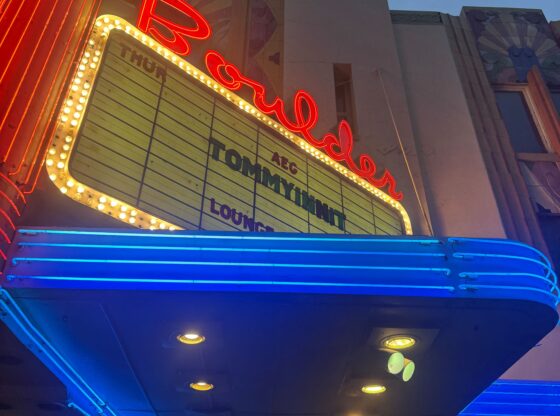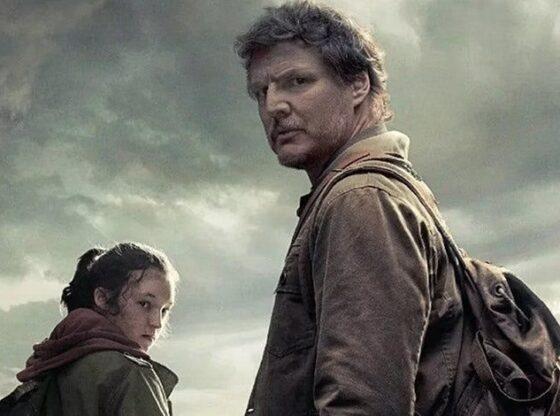Writer/director Todd Solondz (“Welcome to the Dollhouse,” “Happiness”) has done it again with his newest film “Storytelling.” The film is an overall success, although the second half is admittedly less resolved than the first. His characteristic style of bringing disturbingly dark topics is structurally divided into two distinct parts: ‘fiction’ and ‘non-fiction.’
‘Fiction,’ set on a college campus circa mid-80s, stars the exceptional Selma Blair as a confused undergraduate student named Vi, and her insecure boyfriend Marcus (Leo Fitzpatrick), who is afflicted with both cerebral palsy and a terrible habit of exposing himself in his writing. Fitzpatrick’s physical portrayal is simultaneously hard to watch and captivating; he’s grown a lot since his film debut as skater-punk Telly in 1995’s “Kids.”
Vi and Marcus reveal their own mostly autobiographical stories in their shared writing class, conducted by Mr. Scott (Robert Wisdom), an imposing African American, who has won the Pulitzer Prize for his book, A Sunday Lynching and has an affinity for his female students.
In the disconcerting first half of the film, Solondz brilliantly raises a lot of tricky issues pertaining to race, sexuality and physical affliction while still refusing to beat the audience over the head with it.
A pink-haired Blair manages to portray the experienced yet insecure identity of a middle-class college-age student while still maintaining the curiosity and race-consciousness associated with the middle 1980s.
In what may be the most telling line of the film, Mr. Scott warns his class, “Once you start writing, it all becomes fiction.” It is definitely an observation that applies to the second non-fiction part of the film, in the sense it applies to documentarian Toby Oxman’s (Paul Giamatti) inability to see the bias in his documentary filmmaking and Solondz’s own hard-to-disguise condescension for his characters.
Toby, a Manhattan shoe store salesman turned filmmaker, directs his camera on a vulnerable high school senior named Scooby Livingston (Mark Webber) and his family. Scooby is an angst-filled vegetarian at odds with his entire family, which includes his fuming father, Marty (John Goodman), his bland mother, Fern (Julie Hagerty), popular younger brother, Brady (Noah Fleiss), and youngest brother Mikey (Jonathan Osser), an obnoxiously overachieving fifth-grader.
Live-in housekeeper Consuelo (Lupe Ontiveros), an El Salvadorian immigrant, completes the household. Armed with his own prejudices about the younger generation and a video cameraman (Mike Schank), Toby invades the Livingston’s not-so-perfect suburban hell, turning their world upside down.
The story builds to a climatic closure that shatters any potential expectations in a way that only Solondz, with help from pro indie cinematographer, Frederick Elmes can. Elmes’ credits include Lynch’s “Wild at Heart,” “Blue Velvet” and “Eraserhead” and Ang Lee’s “Ride with the Devil” and “The Ice Storm.”
Solondz searches out new taboos to tackle in “Storytelling” and the MPAA threatened to slap it with an NC-17 due to a graphic sex scene after it’s controversial screening at the Cannes Film Festival. In response, Solondz self-censors the scene in an extremely unique way, by placing a red triangle over the pair, leaving more to imagination than could have ever been shown on-screen. The end result is an awkward, cheated feeling in the audience and a smug feeling for Solondz. The European version of the film required no such visual blocking.
Although the second half of the film is admittedly weaker than the first, overall, “Storytelling” is still an undeniable, although determined and critical, view of the extreme cultural customs of 21st century America.











